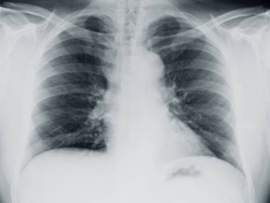
Breathe Training

Mesothelioma Explained: Mesothelioma is a form of cancer that develops from the mutation of cells in the mesothelium—the protective lining of several internal organs. Mesothelioma cancers are often caused by prolonged exposure to asbestos. The bulk of mesothelioma sufferers, therefore, were previously employed with jobs that utilized asbestos filaments or fibers. Although there are different types of mesothelioma cancers, the majority of cases form in the internal wall of the chest cavity or the outer lining of the lungs. Common symptoms attached to mesothelioma include: shortness of breath, which stems from a congregation of fluid between chest wall and the lungs, a persistent cough and unexpected or severe weight loss. One of the major characteristics—and the primary reason why the disease is so deadly—stems from its innocuous nature. Mesothelioma cancer is nearly impossible to detect in its early stages due to its dormant symptoms (a sufferer will first notice symptoms 15-20 years after the initial infection takes place). Similar to other forms of cancer, mesothelioma is categorized by stage. As the disease progresses the prognosis becomes worse. The insidious nature of mesothelioma cancer is paired with its inconspicuousness to create a very dangerous disease—the majority of mesothelioma patients die within 6 months-1 year of diagnosis. The bulk of mesothelioma cancers will not be detected until the disease has spread to the vital organs of the body. When the disease reaches stage III or stage IV it becomes inoperable. By chance, if the disease is caught before the cancer metastasizes, curable treatments, such as surgery, can be implemented to eliminate the cancerous tumors. Additionally, several palliative surgeries (particularly those that clear the pathways and relieve lung pressure) are administered to simply mitigate the suffering associated with the disease. Regardless of the type of operation, patients should partake in breathe training courses to better prepare themselves for mesothelioma surgery. How Does Breathe Training Help Mesothelioma Patients? Mesothelioma cancer affects the mesothelial layer of tissues that serve as a shield for several internal organs, including the heart and lungs. When symptoms form, mesothelioma patients will suffer from shortness of breath, perpetual coughing, weight loss and chest pain. Because mesothelioma cancer affects breathing, patients should practice breathing exercises to ease the pain associated with the condition. When receiving palliative care, yoga breath exercises will help mesothelioma sufferers relax and teach them how to take deeper and more oxygenating breaths. Even patients with severe cancers like mesothelioma, need regular exercise or activity to maintain optimal health.



















